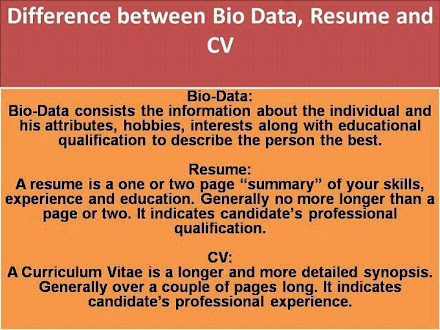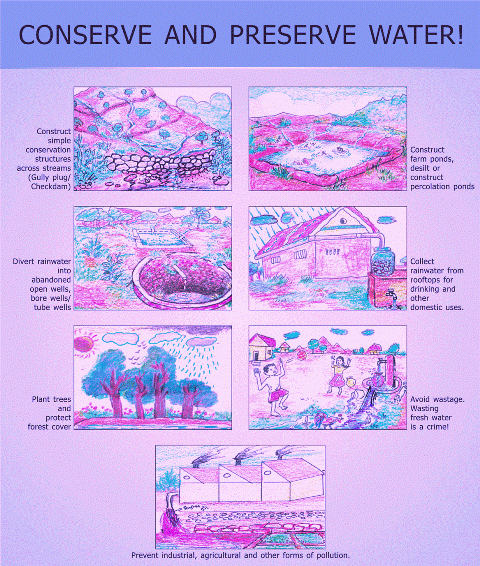A good resume cannot get you a job; but a bad resume can prevent you from getting the interview - and without the interview there's no chance of getting the job.
The new rules for better resumes start with the fact that there are fewer rules. There's an opportunity for some creativity, but not for gimmicks. What works today is conservative style and a focus on a key achievements - especially those that are of particular interest to the reader.
Remember what interests an employer, for let's say an executive assistant position, may not interest the employer hiring a desktop publishing specialist. That's why it is essential that people who qualify for several different jobs (and most do) have several different resumes. All resumes should be accurate and truthful, but each should highlight different strengths as they relate to the job opening.
Better jobs have become more competitive. And they will continue to get more competitive in the coming days, as these better jobs require increased specialized skills.
Since the resume is a primary tool in finding a better job, extra time spent on its preparation is a good investment. In fact, some astute people constantly update their resumes, even though they may never use them to get another job. A reminder of your talents and accomplishments, a current resumes can provide you with clues to getting a better job in your present company or the ammunition to prove you deserve a salary increase.
The best way to explain the new "rules" of resume writing is to explain what you should always do and also what you should never do.
ALWAYS
The new rules for better resumes start with the fact that there are fewer rules. There's an opportunity for some creativity, but not for gimmicks. What works today is conservative style and a focus on a key achievements - especially those that are of particular interest to the reader.
Remember what interests an employer, for let's say an executive assistant position, may not interest the employer hiring a desktop publishing specialist. That's why it is essential that people who qualify for several different jobs (and most do) have several different resumes. All resumes should be accurate and truthful, but each should highlight different strengths as they relate to the job opening.
Better jobs have become more competitive. And they will continue to get more competitive in the coming days, as these better jobs require increased specialized skills.
Since the resume is a primary tool in finding a better job, extra time spent on its preparation is a good investment. In fact, some astute people constantly update their resumes, even though they may never use them to get another job. A reminder of your talents and accomplishments, a current resumes can provide you with clues to getting a better job in your present company or the ammunition to prove you deserve a salary increase.
The best way to explain the new "rules" of resume writing is to explain what you should always do and also what you should never do.
ALWAYS
- Always print your resume on standard letter size, white or ivory rag paper.
- Always have the resume professionally typed, but not typeset, with plenty of space between paragraphs, and allow for adequate margins.
- Always use conventional English. Stay away from multi-syllable words when a one or two syllable word is clearer.
- Always use short paragraphs - preferably no longer than five lines.
- Always make sure the resume and the cover letter are error-free. Proofread, and have others proofread to.
- Always rewrite a resume for a specific company. It's extra work, but may well pay off.
- Always include your significant contributions at each one of your jobs.
- Always allow the most space to the jobs that are most relevant to the job you're applying for.
- Always list your activity with professional, trade and civic associations - but only if they're appropriate.
- Always keep a permanent file of your achievements, no matter how inconsequential they may appear to be. This is the basis for a good resume, and it is also essential information to get a raise or promotion.
- Always give each of your references a copy of your resume.
- Always send a brief, customized letter with each resume.
- Always send your resume by messenger overnight mail if you're applying for a high salary level job and you're reasonably convinced you fit the job specifications.
- Always re-read your resume before interview - chances are the interviewer did just that too.
NEVER
- Never give reasons for termination or leaving a job on the resume. In almost all cases, the reader can find negative connotations to even the best reason. You're far better off explaining it in person.
- Never take more than two lines to list hobbies, sports and social activities. When in doubt, "leave them out".
- Never state "References Available On Request". It's assumed, and clutters up the resume. Other things to leave out include your social security number, your spouse's occupation and your personal philosophies.
- Never list references on the resume.
- Never use exact dates. Months and years are sufficient.
- Never include the date your resume was prepared. If your search takes longer than a few months, the resume will appear outdated.
- Never include your company phone number unless your immediate boss is aware of your departure.
- Never include your height, weight or remarks about your physical appearance or health.
- Never list your high school or grammar school if you're a college graduate.
- Never state your objectives on your resume unless the resume is targeted to that job or occupation.
- Never use professional jargon unless you're sure the resume will be read by someone who understands the buzz-words,
- Never use the so-called "action words" like sparked, accelerated, and streamlined. They're passé.
- Never provide salary information on the resume. Save it for the interview. If you are required to give that information, reveal it in the cover letter.
- Never lie.







No comments:
Post a Comment